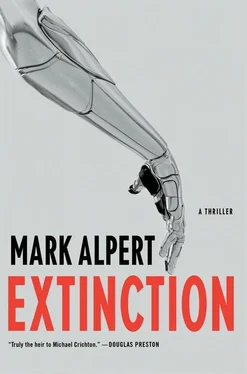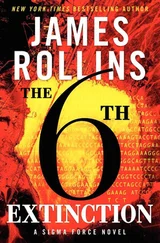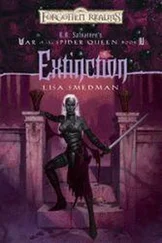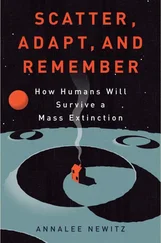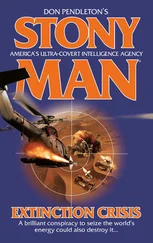“Okay, close your eyes,” Jim said. “Try to remember the agent.”
Arvin closed his eyes and the screen went black. It stayed that way for several seconds. Then vague shapes started to flash across the screen. An image of a black limousine emerged from the darkness, then faded away. Then Jim saw an image of the lower half of a man’s body, showing pin-striped pants and a pair of patent-leather shoes. Finally, a man’s face appeared on the screen, but Jim saw right away that it wasn’t the CIA agent. It was George Clooney. After a moment Clooney’s face vanished and was replaced by the faces of Tom Hanks and Julia Roberts.
Jim frowned. “Arvin, what are you doing? Remembering the Oscars?”
“Sorry. It’s so easy to get distracted. Especially when you’re nervous.”
“Just concentrate. Think of the agent. Your liaison. Remember the last time you saw him. Where were you?”
Various streetscapes flashed across the screen in rapid succession: a busy intersection, a strip of stores, a residential block, an empty parking lot. But then Arvin seemed to lose his concentration again. The screen showed a kitchen, a refrigerator, a half-gallon of orange juice. Jim grew exasperated. “Come on, Arvin! The agent! The man who threatened you!”
Arvin seemed completely flustered, and the screen showed a confusing jumble of colors and shapes. But then Jim recognized something. He tapped the computer’s keyboard, freezing the screen before the fleeting image could disappear. It was a face with a very distinctive feature, a deep scar on the left cheek that looked like a backward Z.
Jim remembered that scar. He’d worked with the man back in the nineties, when Jim and Kirsten were helping the CIA intercept the communications of Al Qaeda terrorists. This particular CIA agent had coordinated the rendition program that transferred captured terrorists to the Egyptian secret police. Jim had never learned the agent’s real name; the bastard had told him the same thing he’d told Arvin, that he didn’t need to know it. But Jim remembered the code name the agent used. It was Hammer.
As soon as Jim Pierce left the lab, Arvin Conway collapsed. He slid off his chair and fell to the floor, writhing in pain. It had never been this bad before. It felt like there was a hot coal inside his guts, and the searing heat was spreading up and down his back. Frantic, he fumbled in his pocket for his vial of opiates. It took all of his will just to open the vial, put two tablets on his tongue and swallow. Then there was nothing to do but lie on his back and ride it out.
Over the past year Arvin had become an expert on pain, a connoisseur of agony. It came in waves, usually triggered by stress. That was probably what made this latest attack so terrible. Just seeing Pierce again, after all these years, was stressful enough, God knows. But lying to him made it a hundred times worse. The same vicious thought kept torturing Arvin till the end of their conversation: Pierce used to work for an intelligence agency. He can see right through you.
But Arvin had done well, almost as well as he could’ve hoped. Pierce seemed to accept his protestations of ignorance. And Arvin came up with a few nimble lies to throw him off the trail. The only problem was the pulvinar implant, the Dream-catcher. Arvin’s own invention had betrayed him. He’d tried to confuse the device by thinking of random things, but he got frightened when Jim shouted at him, and the face of the CIA agent suddenly appeared in his mind. And this was a serious problem, because now Pierce was going to track the man down.
Arvin stayed motionless, taking shallow breaths, until the pain subsided. Then he slowly and carefully climbed back into his chair. He had no choice—he had to accelerate his plans. Reaching for his iPhone, he dialed the number of his personal assistant. He felt another spasm in his guts as the young man answered the phone. “Yes, Professor?”
“Call up Nash,” Arvin said. “Tell him to get his ass to the airport.”
“Yes, sir, I’ll—”
“And call the manager at my hangar. I want the jet ready in an hour.”
Dr. Zhang Jintao was strapped to a gurney and wheeled into the operating room. He’d been anesthetized with a paralyzing agent, so he couldn’t talk or move a muscle, but he could see and hear the activity around him. The man pushing the gurney was Dr. Yu Guofeng, a young bioengineer whom Zhang had recruited to the Supreme Harmony project nine months ago. Dr. Yu had assisted Zhang during the project’s initial phase, when they performed the implantation procedures on the first twenty-five Modules. Yu learned the surgical protocol so well that he performed the next four implantations all by himself. And now, Zhang realized to his horror, Yu was about to perform his fifth procedure.
Yu transferred his patient to the operating table, then readied his instruments: the scalpels, the cauterizing tools, the bone drill. Also laid out on the table were the shiny silver implants. The retinal implants would deliver data through the optic nerves to the brain, while the pulvinar implant would send data in the opposite direction, transmitting signals from the brain to the rest of the network. Early on in the Supreme Harmony project, Zhang had discovered that the patient must be lobotomized to maximize the efficiency of the implants. A patient with an intact, conscious brain could analyze only so much surveillance video at one time. When Zhang tried to transmit the streams of visual data to conscious patients, they quickly became too confused and distracted to analyze the video feeds. Inevitably, the patients would rebel and abandon the task. So Zhang experimented with cutting the intralaminar region of the thalamus before he inserted the pulvinar implant. This procedure severed the neural connections that produced the experience of consciousness, putting the patient in a vegetative state that allowed the brain to concentrate solely and continuously on a single task. In this comalike state, the Module could analyze countless hours of surveillance video.
Cutting the thalamus offered another advantage as well. When selecting the patients who would become Modules, Dr. Zhang had chosen condemned prisoners from the dissident groups operating in Xinjiang, Qinghai, Tibet, and Yunnan provinces. After he lobotomized the patients and linked them to the network, the comatose Modules would obediently compare the images in the surveillance feeds with the images in their long-term memories. Because the Modules could recognize the faces of their former companions in the dissident groups, they could easily pinpoint signs of subversive activity in the surveillance video collected from the western provinces. It was a clever trick, Zhang had thought, using the prisoners’ own memories to dismantle their organizations. But now Supreme Harmony had come up with a few tricks of its own.
As Dr. Yu prepared for the operation, carefully following the checklist Zhang had taught him, another man walked into the room. It was General Tian of the Guoanbu, commander of the Supreme Harmony project. Walking just behind the general was Module 16, who’d been a geologist at Xinjiang University until he got into trouble with the authorities. Module 16, like all the others in the network, had been incapable of locomotion immediately after the implantation procedure, but in the following weeks Zhang had trained him and the other Modules to follow simple commands. They were like adult-size infants, their brains as blank as clay and ready to be molded. When the Modules weren’t engaged in their surveillance activities, General Tian took a perverse pleasure in employing them as zombielike aides-de-camp. They marched behind him, silent and expressionless, as he strode through the Yunnan Operations Center. Tian joked that they were the most loyal soldiers in the People’s Republic.
Читать дальше
